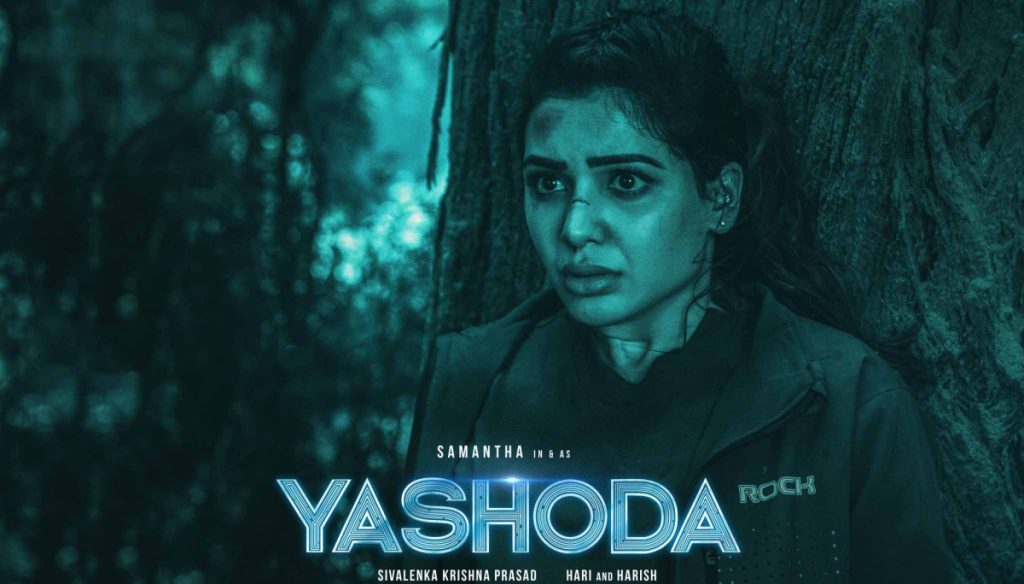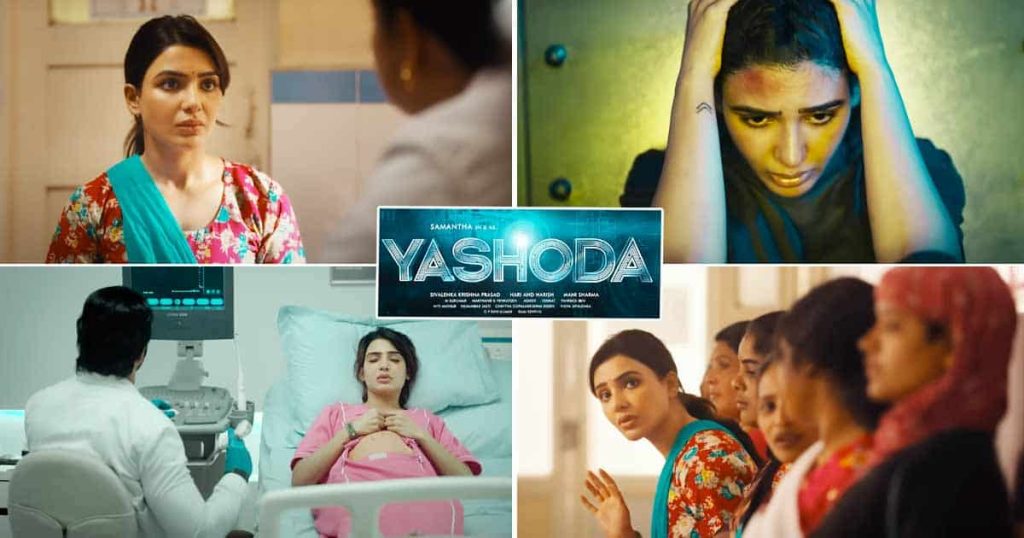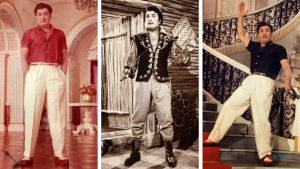REVIEW: Yashoda – A perfectly engaging medical crime thriller, long story short, short story long.

There are stories featuring female lead characters, and most of them substitute a heroine for a hero. For me, it is always exciting to see a film that is focused on women and in which the female lead is the only one who can advance the plot. Yashoda is a story that is so restricted to a female lead that a male hero can never be substituted. Samantha’s character Yashoda, who is in dire need of money, agrees to agree to be a surrogate mother for an unidentified wealthy. Yashoda is escorted to an expensive, opulent motherhood care facility with the most cutting-edge technology based on the stature of the clientele, only to find a group of identical young women. After a series of unexpected turns, one of the most horrifying crimes you will ever see is revealed.
The main benefit is the screenplay, which typically has some important events occur. A thrilling and reliable technique for story telling that keeps the audience interested involves two parallel stories coming together at one time. Sampath’s character Vasudeva and his squad are in charge of leading the investigation into a string of killings, which eventually uncovers a bigger crime that serves as the plot’s central conflict. It is obvious that Samantha, the movie’s unmistakable protagonist, is up to something or in danger, but the twists are less predictable, which makes them all the more exciting. The secrets of the opulent hospital, Madhu’s (Varalaxmi) backstory, Gowtham’s (Unni Mukunthan) questionable sincerity as Samantha’s true love interest, and what actually occurs to the surrogate mothers inside the hospital are all slowly revealed. A few of these revelations are absolutely fantastic; Samantha’s attempt to climb out the window is a prime example.

With her portrayal of Yashoda, Samantha truly shines. Her innocence is admirable, and her action scenes are fantastic. On the other hand, there is a tonne of support from Sampath, who has done a fantastic job as a cool-headed, shrewd, and brilliant officer. This character could have easily been overly confident and cliche, but the writer and actor handled it well. Murali Sharma as the commissioner, did a fantastic job. The lack of time allocated to establishing Varalaxmi and Unni Mukunthan’s roles is the issue. Varalaxmi’s character remains consistent throughout the movie, the subtlety in her performance on all situations lacks impact in times of crisis. A few of the dubbed scenes had odd dialogs that made the action seem forced and overly theatrical at times. The hospital where Samantha and other women reside is the film’s main location, and it was first questioned as to whether or not it actually existed because it was shot near to a dream world. It is only when justified in the latter part of the film, I thought the art (Ashok) and cinematography (M. Sukumar) have done a fantastic job.
Long story short, short story long – The most important part of the plot, Varalaxmi and Unni Mukunthan’s backstory, has, regrettably, not been given enough time to be thoroughly explained. The most important scenes were rushed and hardly made an impression, and even then, only verbally. Because the plot that is covered in the flashback is so thin, it is easy to raise doubts about the character’s viewpoint and the author’s perception of women’s interests in beauty and cosmetics without providing the necessary justification. This in turn affects how the two performers perform. On the other hand, several moments with less value, such as a few action scenes, have taken longer than necessary.
The seriousness of the medical crime that Yashoda is dealing with will astound the viewers. This movie would have been more than just an interesting medical criminal thriller if the narrative’s core had received more attention than its action sequences and plot twists.
Author Profile
-
Talk to me about your favourites and know the Unnoticed.
This is Madhan Ranganathan (a) Felix Kingsley - Behind the Mirrors
Latest Articles
 Reviews2023.02.08Michael – One of the most cooked recipes, ends up flavourless
Reviews2023.02.08Michael – One of the most cooked recipes, ends up flavourless Reviews2022.12.25REVIEW: Connect – Successful in recreating the “Hollywood” horror but lacks content
Reviews2022.12.25REVIEW: Connect – Successful in recreating the “Hollywood” horror but lacks content Reviews2022.12.25REVIEW: Laththi – A refreshing storyline falling prey to the usual mass hero’s heroics
Reviews2022.12.25REVIEW: Laththi – A refreshing storyline falling prey to the usual mass hero’s heroics Reviews2022.12.13REVIEW: Varalaru Mukkiyam – A plot in the name of ‘Just for fun’ is loosely written and executed
Reviews2022.12.13REVIEW: Varalaru Mukkiyam – A plot in the name of ‘Just for fun’ is loosely written and executed















